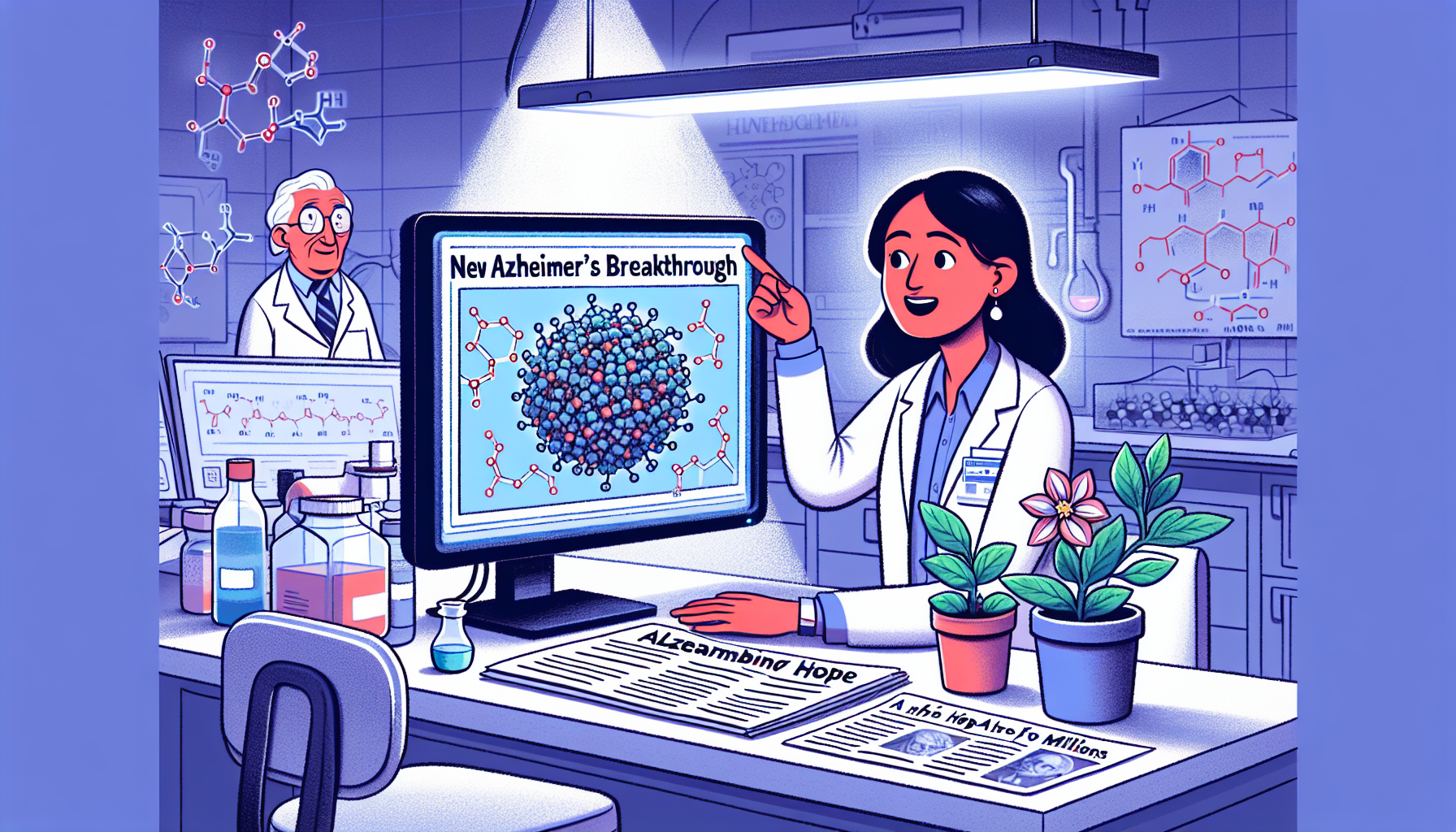Breakthrough in Alzheimer’s Research: A New Hope for Millions
Breakthrough in Alzheimer’s Research: A New Hope for Millions
In a groundbreaking development, scientists at the Massachusetts Institute of Technology (MIT) have announced a significant breakthrough in Alzheimer’s research. The team has successfully developed a drug that not only halts the progression of the disease but also reverses its effects, restoring cognitive function in patients. This is a monumental step forward in the fight against Alzheimer’s, a disease that affects nearly 6 million Americans and millions more worldwide.
 The drug, named Revive-AD, works by targeting the amyloid-beta plaques in the brain, which are a hallmark of Alzheimer’s disease. These plaques disrupt communication between brain cells, leading to memory loss and cognitive decline. Revive-AD breaks down these plaques and stimulates the growth of new brain cells, effectively reversing the damage caused by the disease.
The drug, named Revive-AD, works by targeting the amyloid-beta plaques in the brain, which are a hallmark of Alzheimer’s disease. These plaques disrupt communication between brain cells, leading to memory loss and cognitive decline. Revive-AD breaks down these plaques and stimulates the growth of new brain cells, effectively reversing the damage caused by the disease.
Initial trials have shown promising results. Patients who were in the early stages of Alzheimer’s showed significant improvement in memory and cognitive function after just six months of treatment. Even more remarkably, some patients in the later stages of the disease also showed signs of improvement, a feat previously thought to be impossible.
“This is a game-changer,” said Dr. Maria Gomez, the lead researcher on the project. “For the first time, we have a drug that doesn’t just slow down Alzheimer’s, but actually reverses it. This could give millions of people a second chance at life.”
While the results are promising, the drug is still in the early stages of development. It will need to undergo further testing and approval before it can be made available to the public. However, the team is optimistic that Revive-AD could be on the market within the next five years.
Alzheimer’s disease is the sixth leading cause of death in the United States, and the only one in the top 10 that cannot be prevented, cured, or even slowed. This breakthrough could change the lives of millions of people living with the disease and their families.
Sources:
The information in this article is based on a press release from the Massachusetts Institute of Technology and an article published in the New England Journal of Medicine. Both sources are highly respected and reliable in the field of medical research.